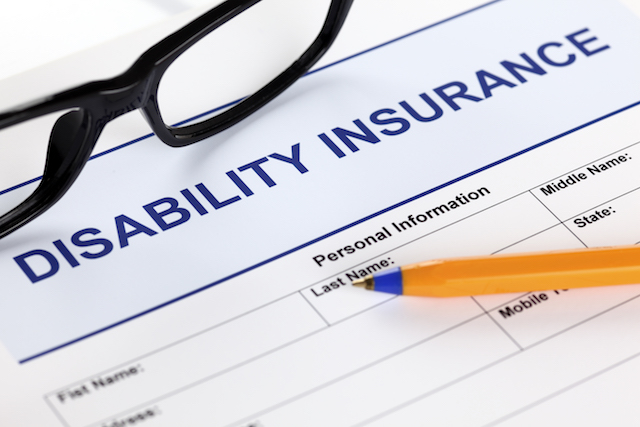Can You Apply for Disability After Being Laid off in Pennsylvania?
Unfortunately, there are people throughout Pennsylvania who have worked for their employer for years who suddenly find themselves laid off from their job. Some of these individuals suffered from a medical condition or disability that made work either challenging or impossible. If you were laid off because you were unable to comply with the physical or mental requirements of your position, you might be eligible for Social Security Insurance Disability (SSDI) benefits. Our Philadelphia disability benefits lawyers at Young, Marr, Mallis & Associates takes a closer look at how your employment situation impacts your eligibility for benefits.
SSDI Benefits in Pennsylvania
SSDI benefits are funded through payroll taxes paid under the Federal Insurance Contributions Act (FICA). If you work, part of your federal taxes fund Social Security and Medicare programs. SSDI is managed by the Social Security Administration (SSA).
If you are laid off from your job, you do not automatically qualify for benefits. For an individual in Pennsylvania to be eligible for SSDI, they must have been employed for a required period of time. The employment must have been “qualified,” meaning that the individual was paying into FICA taxes while working.
Work Credit Requirement for SSDI
The SSA awards a maximum of four work credits for every year of employment. These credits are based on your yearly wages or self-employment earnings. Furthermore, your work credits are also influenced by your age at the time you became disabled. The amount required to qualify fluctuates, so you should speak with an experienced Bucks County Social Security Disability attorney to review the exact requirements.
The first thing our office will have to determine to assist you in applying for SSDI benefits is if you worked long enough to meet the qualifications. Being laid off does not necessarily prohibit you from filing for benefits, especially if you had worked for years or decades.
Eligible Medical Condition
Your number of eligible work credits is only the first part of the equation. As stated above, being laid off does not qualify you for SSDI benefits. You must also prove that you are suffering from a debilitating medical condition that prevents you from working. If you were laid off because of budgetary concerns, then it is unlikely that you will qualify for Social Security benefits.
The SSA defines a disabling condition as a medical condition that prevents you from doing the work you were capable of doing, or other work, before becoming disabled. Furthermore, your medical condition must have lasted or is anticipated to last at least twelve months or end in death. SSDI is not long or short-term disability.
Why You Were Laid Off Impacts SSDI in Pennsylvania
SSDI is not an unemployment program. Your medical condition must prevent you from working at “substantial gainful employment (SGA).” SGA is the amount of income defined by the SSA that an individual could earn that would disqualify them for SSDI. As of 2021, the SGA for a person in Pennsylvania is $1,310 a month. Therefore, if you could earn that amount or more, you are not eligible for SSDI.
If you are applying for SSDI benefits after being laid off, the reason will matter. Individuals are laid off for numerous reasons, including economic decisions, employee conduct, to corporate restructuring. None of these reasons would qualify a person for SSDI. However, if you were laid off because a medical condition renders you incapable of working, you might be eligible for Social Security Benefits. Our Pennsylvania disability lawyer will have to evaluate the reasons why you lost your job.
Other Reasons Why SSDI Benefits Are Denied in Pennsylvania
Being laid off from your job does not automatically make you eligible for SSDI benefits. In fact, if you lost your job for any other reason other than because a medical condition prevented you from doing your duties, an SSDI claim will be denied.
The SSA denies a significant percentage of initial claims. In most years, only thirty to thirty-five percent of applications are approved. Not having accumulated enough work credits is one reason. There are also many common errors that people make that our Delaware County disability benefits lawyer could help you prevent.
One of the primary reasons applications are denied is a failure to present sufficient evidence of your medical condition. You are applying for disability benefits. Without proof of a qualifying disabling condition, your benefits will not be approved.
Evidence of treatment and discomfort is not enough to demonstrate that a condition prevents you from working. For example, you could experience leg pain and have proof of years of doctors’ appointments and treatments to substantiate your claim. However, if the evidence is not tailored to show that you are prevented from working, your claim will likely be denied. Our office will work with your medical and healthcare professionals to piece together evidence to demonstrate the actual impact your condition has on your ability to earn a living.
What About Unemployment Benefits When Applying for SSDI in Pennsylvania?
When a person is laid off from their job, they are usually entitled to collect unemployment benefits. However, if you want to apply for SSDI, the unemployment process places you in a difficult situation.
A fundamental requirement for receiving unemployment compensation in Pennsylvania is the ability and willingness to work. For your medical condition to meet SSA requirements, it must also make you ineligible for unemployment benefits. Therefore, if you are applying for SSDI benefits with our Pennsylvania Social Security Disability attorney, you are prohibited from filing for unemployment compensation.
Contact Our Pennsylvania Social Security Attorney to Discuss SSDI if You Were Laid Off From Your Job
If your medical condition prevents you from working and has resulted in you losing your job, you could be eligible for SSDI. Our Pennsylvania Social Security Disability attorneys have been assisting our clients in navigating the challenging process of applying for benefits for decades. To schedule a free and confidential appointment with one of our experienced attorneys, contact Young, Marr, Mallis & Associates at (215) 701-6519.






























